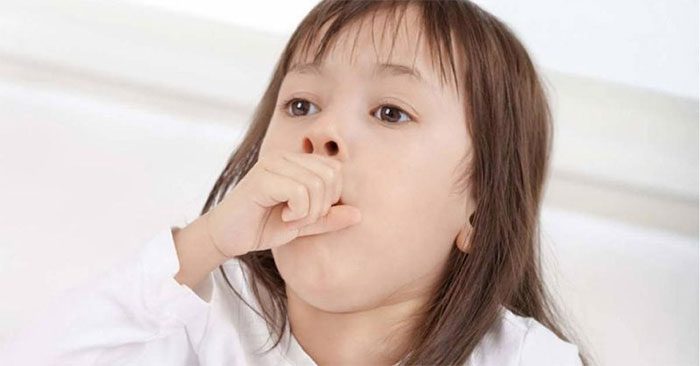Respiratory Syncytial Virus spreads very quickly, second only to the flu virus. It easily transmits from person to person through respiratory secretions such as coughing, sneezing, or direct contact like handshakes and kisses. It is estimated that one infected child can transmit the virus to five others.
What You Need to Know About Respiratory Syncytial Virus Infection
What is Respiratory Syncytial Virus Infection?
Respiratory Syncytial Virus (RSV) is a virus that causes infections in the lungs and respiratory tract. This virus infection is very common, with most children being infected before the age of 2. Respiratory Syncytial Virus can also infect adults.
In healthy adults and children, the symptoms of RSV infection are usually mild and resemble those of a common cold. Self-care measures are often sufficient to alleviate any discomfort.

This virus infection is very common, most children are infected before the age of 2.
RSV infection can be serious in some cases, especially in premature infants and newborns with underlying health issues. The disease can also become severe in older adults, those with heart and lung conditions, or anyone with a weakened immune system.
Symptoms of Respiratory Syncytial Virus Infection
When Respiratory Syncytial Virus (RSV) affects the nose and throat (upper respiratory system), the symptoms are usually mild and similar to those of a common cold, including:
- Cough.
- Stuffy or runny nose.
- Mild sore throat.
- Earache.
- Fever, typically at the onset of the illness. Note that a high fever does not necessarily indicate a more severe illness.
Children may also exhibit other symptoms, including:
- Decreased interest in their surroundings.
- Lethargy and drowsiness.
- Irritability and poor sleep.
- Poor feeding.
- Apnea, lasting about 15 to 20 seconds. This usually occurs only in premature infants and those with a history of apnea.
It is often difficult to distinguish between a cold and a typical RSV infection. Unless you or your child are at risk for complications from RSV infection, identifying the exact virus causing the symptoms is usually not important.
RSV infection can sometimes lead to bronchiolitis, pneumonia, or both.
Symptoms of these complications include:
- Difficulty breathing, faster than normal breathing.
- Wheezing.
- Progressively worsening cough. Children may experience choking or vomiting due to severe coughing.
- Listlessness, increased fatigue, decreased interest in their surroundings, or loss of appetite.
You may encounter other symptoms not mentioned here. If you have any concerns about signs of illness, consult a doctor.
Most cases of respiratory syncytial virus infection are not life-threatening.
Seek immediate emergency care if your child – or anyone at risk of severe illness – shows signs of difficulty breathing, high fever, or turns blue, especially around the lips and nails.
Causes of the Disease
Respiratory Syncytial Virus enters the body through the eyes, nose, or mouth. It spreads easily through respiratory secretions infected with the virus, such as through coughing or sneezing. The virus can also be inhaled or passed to others through direct contact, such as handshakes.
The virus can survive for hours on surfaces like tables and toys. You may become infected with the virus if you accidentally touch contaminated objects and then touch your mouth.
The first few days after being infected are the highest risk for transmission, but with respiratory syncytial virus, the contagious period can extend for weeks after the initial infection.
Risk Factors
In fact, respiratory syncytial virus infection is the most common cause of bronchiolitis (inflammation of the small airways in the lungs) and pneumonia in children under 1 year of age. It is also a leading cause of respiratory illnesses in older adults. The disease can be managed by reducing risk factors. Discuss with your doctor for more information.
There are many risk factors for respiratory syncytial virus infection, such as:
- Infants under 6 months old
- Young children, particularly those under 1 year old, especially if they were premature or have underlying conditions such as congenital heart disease or lung disease
- Children with weakened immune systems, such as those undergoing chemotherapy or organ transplants
- Infants in overcrowded care environments
- Elderly individuals
- People with asthma, congestive heart failure, or chronic obstructive pulmonary disease
- Individuals with compromised immune systems, including those with organ transplants, leukemia, or HIV
Treatment
The information provided cannot replace professional medical advice. Always consult your doctor.
Your doctor may suspect you have a respiratory syncytial virus infection based on a clinical examination and the time of year during the infection season. During the examination, the doctor will use a stethoscope to listen to the lungs for wheezing or other abnormal sounds.
The doctor may also use:
- Pain-free skin tests (Pulse oximetry) to check if blood oxygen saturation levels are below normal
- Blood tests to check white blood cell counts or to look for the presence of viruses, bacteria, or other organisms
- X-rays to check for pneumonia
- Tests for viruses in nasal secretions or respiratory secretions
Treatment for respiratory syncytial virus infection usually focuses on self-care to help your child feel more comfortable (supportive care). Severe cases may require hospitalization.
Supportive Care
Your doctor may recommend acetaminophen (Tylenol® and other brands) to reduce fever. Antibiotics may be used if complications arise from bacterial infections such as bacterial pneumonia.
You can also help your child feel more comfortable. Ensure they drink plenty of fluids and monitor for signs of dehydration, such as dry mouth, little to no urine, sunken eyes, or increased irritability or drowsiness.
Hospital Care
Hospital care for severe RSV infections may include intravenous fluids and humidified oxygen therapy. Hospitalized infants and young children may need ventilators to assist with breathing.
In some severe cases, bronchodilator medications in aerosol form may be used to clear airways and reduce wheezing, such as albuterol. Aerosols are medications used by inhaling them in mist form.
Occasionally, aerosolized ribavirin (Virazole®), an antiviral medication, may be utilized. Doctors may also administer epinephrine or a similar form of epinephrine used with a nebulizer (racemic epinephrine) to alleviate RSV symptoms.
Appropriate Lifestyle
Lifestyle changes and home remedies can help you cope with respiratory syncytial virus infection:
Cases of mild to moderate respiratory syncytial virus (RSV) infection in healthy individuals resemble a common cold and can be treated at home. If your child is over 12 months old and not at risk of complications from RSV infection, consider home treatment. RSV infections in individuals at high risk for complications should be closely monitored.
Individuals with weakened immune systems should see a doctor at the first signs of a cold due to their high risk of complications. Additionally, infants, young children, elderly individuals, and those with health issues or other risk factors should consult a doctor at the first sign of RSV.
How to Care for a Child Infected with RSV
- Monitor for signs of dehydration. Ensure adequate fluid intake to replace losses from rapid breathing, fever, diarrhea, or vomiting. Encourage breastfeeding more frequently or bottle-feeding. Avoid giving sports drinks, sodas, diluted fruit juices, or plain water. These beverages may contain too much sugar, provide little energy, or lack the necessary balance of essential minerals (electrolytes).
- Help your child feel more comfortable by alleviating symptoms. Sometimes children need symptom relief with medications like acetaminophen or ibuprofen, or by holding them in an upright position to make breathing easier. Use medications safely by reading and following all instructions on the label. Never give aspirin to anyone under 20 years old, as it can cause Reye’s syndrome, a rare but serious condition. For more information, read the medication instructions before giving it to your child.
- Antibiotics are usually not used for viral infections. However, if your child develops complications from RSV, such as an ear infection, the doctor may prescribe an antibiotic. Do not stop antibiotics when your child starts feeling better. Complete the full course of treatment to eradicate the bacteria completely. If your child does not finish the prescribed amount, the infection may return.
- Take care of yourself. Caring for a sick child can be physically and mentally exhausting. You can only help your child when you are healthy and well-rested.
If you have any questions, consult your doctor for advice on the best supportive treatment methods.


















































